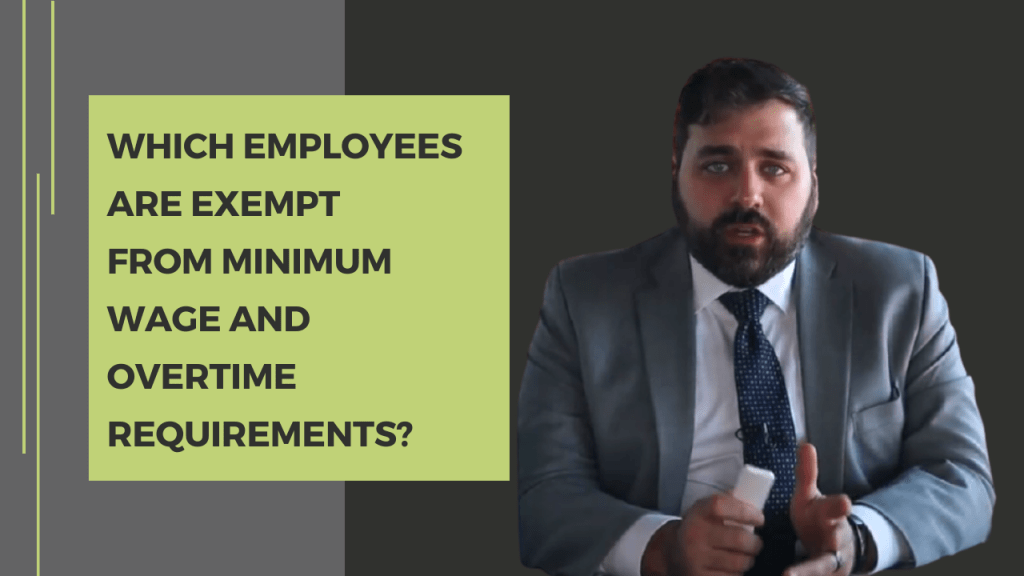Which Employees Are Exempt from Minimum Wage and Overtime Requirements?

Under the FLSA, employees are entitled to be paid a minimum wage for each hour worked and to be paid one-and-a-half times their regular rate of pay for each hour in excess of 40 hours worked in a workweek (some states have slightly different regulations).
Certain employees are exempt from these requirements, including employees who are employed in a bona fide executive, administrative, or professional capacity, as well as outside salespeople.
A three-part test was created in order to define who are exempt professionals:
- The salary basis test determines that the employee must be compensated on a salary or fee basis.
- The salary level test determines that the salary paid must meet a specific minimum amount.
- The duties test determines that the employee’s primary duty must be to perform work that requires either knowledge of an advanced type in a field of science of learning, customarily acquired by a prolonged course of specialized intellectual instruction; or invention, imagination, or talent in a recognized field of artistic or creative endeavor.
An alternative to this three-part test for this particular exemption is the “highly compensated employee test”, which eliminates the need for a detailed analysis of the employee’s job duties. Under this test, the employee qualifies as exempt if they customarily and regularly perform at least one of the exempt executive, administrative, professional, learned, or creative duties, and receives total compensation of at least $107,432 a year. The total compensation must include at least $684 per week, paid on a salary or fee basis as well.
The FLSA exemptions are just as much part of the FLSA’s purpose as the minimum wage and overtime pay requirements, and therefore must receive a fair (rather than narrow) interpretation. The Wage and Hour Division, therefore, interprets the act neither expansively nor narrowly, but instead according to conventional canons of statutory interpretation.

